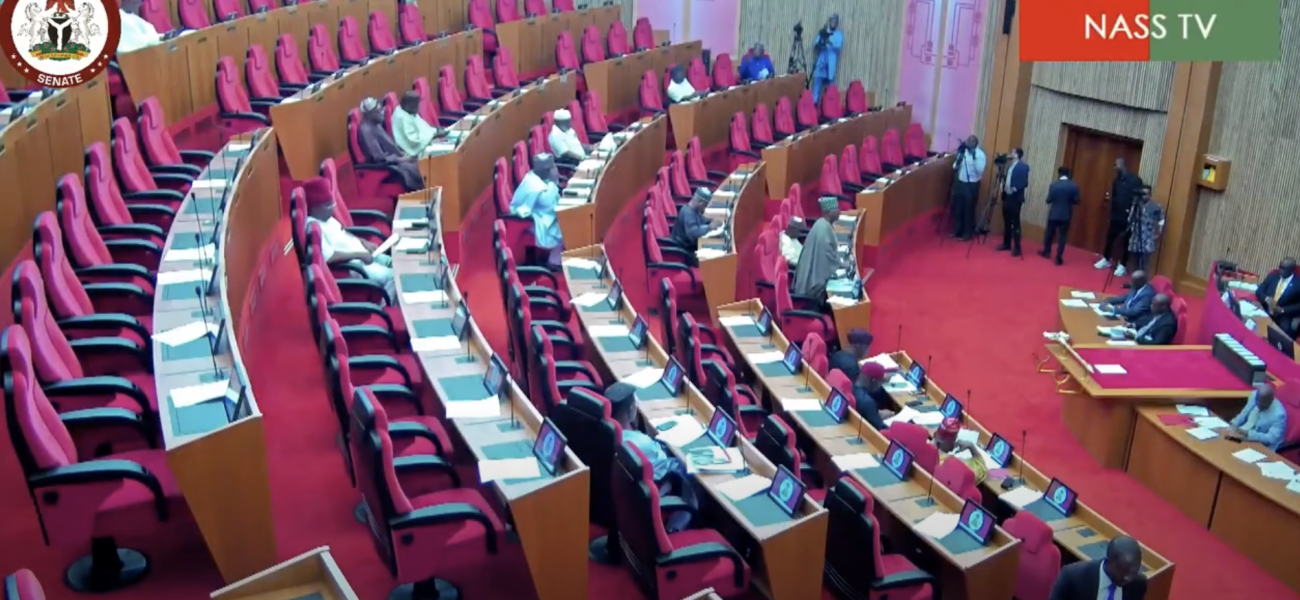The recurring pattern of low attendance at plenary sessions in both chambers of Nigeria’s National Assembly continues to raise serious concerns about the legitimacy or even legality of decisions taken under such conditions.
Section 54(1) of the 1999 Constitution (as amended) provides that one-third of the members of either chamber must be present for plenary proceedings to validly occur. For the House of Representatives, that means at least 120 of the 360 members; for the Senate, a minimum of 36 senators is required. These thresholds are not just formalities. They are constitutional safeguards intended to ensure deliberative legitimacy and representative governance. Yet, both chambers have, on various occasions, proceeded with debates, motions, and even the passage of bills in circumstances that strongly suggest these thresholds were not met.
In March 2025, both chambers of the National Assembly approved a resolution for a state of emergency in Rivers State under Section 305 of the Constitution—but the procedure drew constitutional scrutiny. The House, after failing to meet quorum on March 19, reconvened with 243 members on March 20 and passed the resolution via voice vote, without a recorded tally. The Senate adopted a similar approach after a closed session. Given that Section 305 requires a two-thirds majority of all members, the lack of documented votes means there’s no verifiable evidence that the constitutionally required two-thirds majority was truly met.
These are not isolated cases. In the past, landmark legislation such as the Petroleum Industry Bill (now Petroleum Industry Act) and key amendments to the Electoral Act were passed during sittings in which photographic and gallery observation evidence showed sparsely populated chambers. In some instances, entire sections of the seating areas were visibly empty while consequential national legislation was being debated and passed.
The implications are not merely procedural. Section 1(3) of the Constitution clearly states that “if any other law is inconsistent with the provisions of this Constitution, this Constitution shall prevail…” Thus, any bill or motion passed in violation of the quorum requirement could be legally contested and rendered null and void.
The deeper issue here is not merely absenteeism, but the systemic erosion of legislative standards and democratic accountability. When laws are passed by a fraction of lawmakers, the outcomes risk being disconnected from the will of the people. Moreover, public trust in the National Assembly, which is already tenuous, is further eroded when citizens witness near-empty chambers deliberating on issues of national importance. When legislation or motions are passed with questionable quorum, or through processes that conceal how many lawmakers were present or how they voted, the legitimacy of those decisions comes into serious doubt.
Policy and Legal Advocacy Centre (PLAC) strongly urges the leadership of both chambers of the National Assembly to prioritize institutional transparency in their legislative processes. Attendance records for plenary and committee sessions should be made publicly accessible to allow constituents track the engagement of their representatives. Quorum rules must be rigorously enforced, and presiding officers should take responsibility for ensuring legal thresholds are met before proceedings begin. Adopting electronic attendance and voting systems would significantly enhance accountability. Existing rules on absenteeism must also be enforced through concrete sanctions to deter chronic non-compliance.
If other democracies can enable citizens to track parliamentary participation and voting records, Nigeria must rise to the same standard.
PLAC reiterates that Nigeria’s democracy can only function credibly when its legislative arm upholds both the letter and spirit of the Constitution. That means adhering strictly to quorum rules, maintaining attendance discipline, and ensuring voting procedures are transparent and recorded—especially where the law demands it. Legislating in half-empty chambers not only casts doubt on the decisions taken but also diminishes public confidence in the democratic process.
If the National Assembly is to retain its institutional legitimacy, it must demonstrate that it can conduct its business openly, lawfully, and with the seriousness the Constitution demands.

